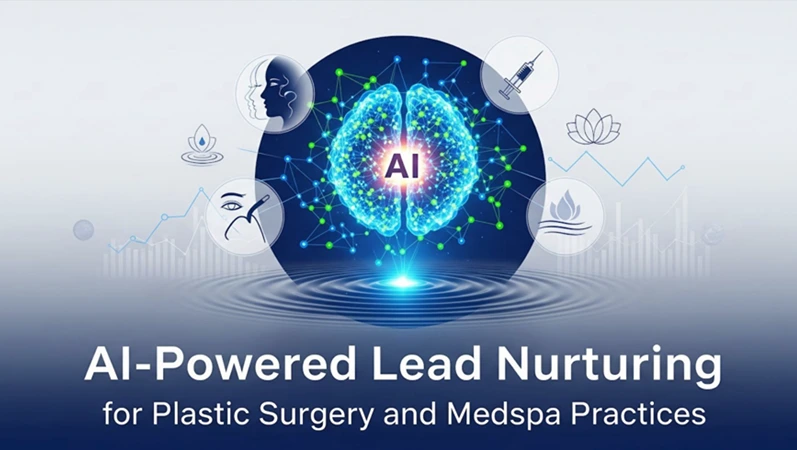
Ever wondered how to get your team and your customers on the same page? Combining Customer Relationship Management (CRM) and project management might just be the game-changer you need. In this article, we'll explore how meshing CRM with project management can streamline your operations, boost customer satisfaction, and drive your business forward. Get ready to discover the benefits and how to make it work for you.
What are the differences between CRM and project management software?
CRM (Customer Relationship Management) software is primarily designed to manage customer interactions, sales pipelines, and marketing campaigns, focusing on nurturing relationships and driving revenue. In contrast, project management software is tailored to organize tasks, schedules, and resources for specific projects, emphasizing collaboration, timeline adherence, and efficient resource allocation.
Features
CRM software primarily focuses on managing customer interactions, sales, and marketing campaigns, while project management software is tailored for organizing tasks, timelines, and resources for specific projects.
Use Cases
CRMs are ideal for maintaining customer databases, managing sales pipelines, and tracking interactions, whereas project management software is designed for task assignment, scheduling, and resource allocation within projects.
Benefits
CRMs enhance customer relationships, streamline sales processes, and improve marketing strategies, whereas project management software boosts team collaboration, ensures project deadlines are met, and optimizes resource utilization.
Average Price
CRM and project management software vary in pricing based on features, scalability, and deployment options, ranging from affordable subscription-based models to enterprise-grade solutions.
Can a CRM be used for project management?

Yes, CRM platforms offer robust functionalities that can indeed be repurposed for project management tasks. By harnessing features like task management, scheduling tools, and collaboration capabilities inherent in CRM systems, businesses can effectively organize projects, allocate resources, and monitor progress within the framework of their existing CRM infrastructure.
This adaptability streamlines operations and fosters synergy between customer relationship management and project management efforts, ultimately enhancing overall organizational efficiency and effectiveness.
What is CRM project management?
CRM project management entails utilizing CRM software to manage and track projects alongside customer interactions, allowing businesses to streamline operations and enhance customer satisfaction.
What are the main features of a good CRM project management software?
An excellent CRM project management software encompasses diverse features designed to streamline project execution and enhance team collaboration.
Here's an in-depth look at the main features:
1. Ease of Use
An intuitive user interface and navigation system ensure that team members can quickly adapt to the software, accelerating adoption rates and minimizing training overhead.
2. Customizability
Flexible customization options empower businesses to align the software with their unique workflows and processes, fostering greater efficiency and adherence to organizational standards.
3. Client Collaboration
By facilitating seamless communication and collaboration with clients, the software promotes transparency and fosters a feedback-rich environment throughout the project lifecycle, enhancing client satisfaction and project outcomes.
4. Document and Data Management
Centralized storage and organization of project-related documents and data simplify access and retrieval, promoting data integrity and minimizing information silos.
5. Portfolio Management
The capability to manage multiple projects simultaneously provides stakeholders with an overarching view of project portfolios, enabling effective resource allocation and strategic decision-making.
6. Visual Project Management
Interactive dashboards and Gantt charts offer visually intuitive representations of project progress and timelines, empowering stakeholders to monitor project status and identify potential bottlenecks at a glance.
7. Sales Pipeline Management
Integration of sales pipelines within project management workflows enables seamless tracking of sales activities, forecasting revenue projections, and aligning sales efforts with project goals.
8. Streamlined Communication
Built-in communication tools, such as chat, email, and notifications, foster efficient collaboration and task coordination among team members, reducing communication barriers and minimizing delays.
9. Data-driven Insights
Advanced analytics and reporting features provide stakeholders with valuable insights into project performance, resource utilization, and customer engagement, facilitating informed decision-making and continuous improvement.
10. Integrations
Seamless integration with other business tools and software, such as accounting systems and communication platforms, enhances productivity and workflow automation, enabling a holistic approach to business management.
What are the pros and cons of combining CRM and project management?

Let’s discuss the pros and cons of CRM and project management combined.
Pros
The integration of CRM and project management software offers several advantages for businesses seeking to enhance their operational efficiency and project outcomes.
- Better Data Management: By consolidating customer and project data within a single platform, organizations can gain holistic insights into customer preferences, project performance, and resource utilization. Centralized data management promotes data integrity, reduces duplication, and streamlines decision-making processes.
- Improved Deliverables: The seamless coordination between CRM and project management functions facilitates enhanced collaboration among team members, leading to improved project deliverables and customer satisfaction. Clear communication channels and streamlined workflows enable teams to stay aligned with project goals and deadlines, resulting in higher-quality outcomes.
- Saves Time and Money: Integrating CRM and project management software eliminates the need for separate systems and manual data entry, reducing administrative overhead and minimizing the risk of errors. Automated processes and streamlined workflows enable teams to allocate resources more efficiently, optimize project timelines, and reduce project costs.
- Cross-Departmental Alignment: The unified platform fosters cross-departmental alignment by enabling seamless communication and collaboration among sales, marketing, and project teams. Shared data and real-time updates facilitate transparency and coordination across different departments, promoting synergy and alignment with organizational objectives.
Cons
While the integration of CRM and project management software offers numerous benefits, there are also some potential drawbacks that organizations should consider.
- Different Timelines: CRM and project management functions may operate on different timelines, leading to potential conflicts and challenges in coordinating activities. Differences in priority and urgency between customer relationship management tasks and project deadlines may require careful planning and prioritization to ensure alignment and minimize disruptions.
- Some All-in-One Apps Can be Expensive: Comprehensive CRM project management solutions with extensive features and integrations may come with a higher price tag, especially for smaller businesses with limited budgets. Organizations should carefully evaluate the cost-benefit ratio and consider their specific requirements before investing in all-in-one software solutions.
Frequently Asked Questions

Here, we address common inquiries, providing insights into how CRM systems facilitate project management and more.
How does a CRM help with project management?
CRM systems facilitate project management by centralizing customer data, streamlining communication, and providing insights into customer needs and preferences.
What is the best CRM for project management?
Leapify CRM stands out as one of the best CRM project management software solutions, offering a comprehensive suite of features for seamless customer relationships and project management.
What should you consider when switching to CRM for project management software?
Key considerations include scalability, integration capabilities, ease of use, pricing, and the specific needs of your business and projects.
Boost Your Business Performance With Leapify
Integrating project management and CRM software offers businesses a powerful toolset for optimizing operations, enhancing customer relationships, and driving project success. By tapping into the strengths of both CRM systems and project management tools, your business can move smoother, deliver better, and keep customers happier.
Leapify CRM is a standout choice for blending CRM and project management. With Leapify, you get all the essential features to compete and thrive in today's market. Discover how this synergy can unlock new levels of efficiency and success for your business. Contact them today!



